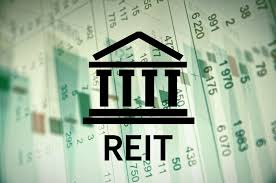What are REITs?
Real estate investment trusts, or REITs, are businesses that own and manage properties to make money. Companies that manage portfolios of high-value real estate properties and mortgages are known as real estate investment trust companies. For instance, they rent out properties and get paid for them. The stockholders are then given income and dividends from the rent that was thusly collected.
REITs typically give investors the chance to own expensive real estate and give them the chance to receive dividend income, which will gradually increase their capital. Investors can take advantage of the chance to increase their capital and produce income at the same time in this way.
Real Estate Investment Trust Types (REIT)
In a broader sense, how REITs conduct business tends to help identify them more accurately. REITs are further categorized by the procedures developed for the sale and purchase of shares.

The numerous kinds of REITs are listed below.
- Equity.
One of the most common types of REIT is this one. Typically, it focuses on running and overseeing commercial buildings that produce income. Notably, rents are a typical source of income in this area. - Mortgage
It is also known as mREITs, and its primary activities include extending mortgage facilities and making loans to business owners. Additionally, REITs frequently buy mortgage-backed securities. Mortgage REITs also make money from interest on the money they lend to business owners. - Hybrid
With this choice, investors can diversify their holdings by putting money in equity and mortgage REITs. Therefore, the sources of income for this specific type of REIT are both rent and interest. - Individual REITs
These trusts operate as private placements, catering to a small number of investors. Private REITs are often not listed on national securities exchanges and are not SEBI-registered. - Exchange-traded REITs
Real estate investment trusts that are open to the public often provide shares that are listed on the National Securities Exchange and subject to SEBI regulation. Through the NSE, individual investors can buy and sell these shares.

